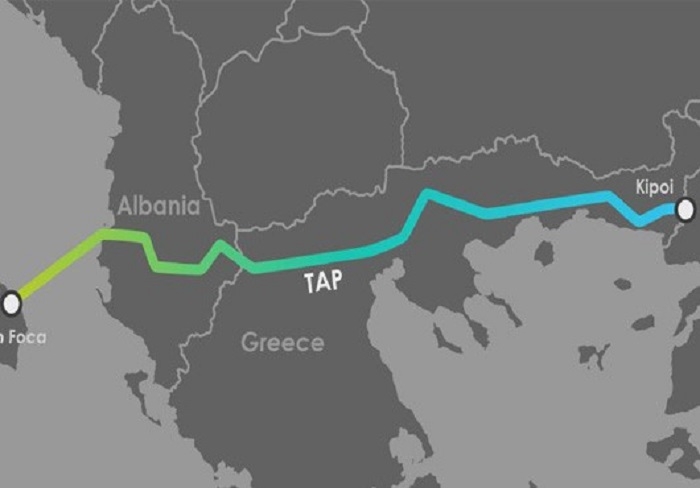“That's because many of the markets in this region use large amounts of carbon. Therefore, the implementation of the TAP project can give an opportunity to reduce carbon in their energy mix, thereby ensuring a more sustainable energy future,” said Scoufias.
Regarding the process of the project’s implementation, he noted that TAP is on track.
“The delivery of pipelines to the Greek ports of Kavala, Thessaloniki and Alexandroupolis continues. So far, about 66 percent of the total of 32,000 pipelines needed for the construction of TAP’s Greek section has been received,” said the country manager.
Moreover, Scoufias expressed confidence that the work on TAP in Italy will also continue in accordance with the schedule.
TAP is a part of the Southern Gas Corridor, which is one of the priority energy projects for the European Union. The project envisages transportation of gas from Azerbaijan's Shah Deniz Stage 2 to the EU countries.
The pipeline will connect to the Trans Anatolian Natural Gas Pipeline (TANAP) on the Turkish-Greek border, run through Greece, Albania and the Adriatic Sea, before coming ashore in Italy’s south.
TAP will be 878 kilometers in length (Greece 550 kilometers, Albania 215 kilometers, Adriatic Sea 105 kilometers, and Italy 8 kilometers).
TAP’s shareholding is comprised of BP (20 percent), SOCAR (20 percent), Snam S.p.A. (20 percent), Fluxys (19 percent), Enagás (16 percent) and Axpo (5 percent).
More about: #TAP















































